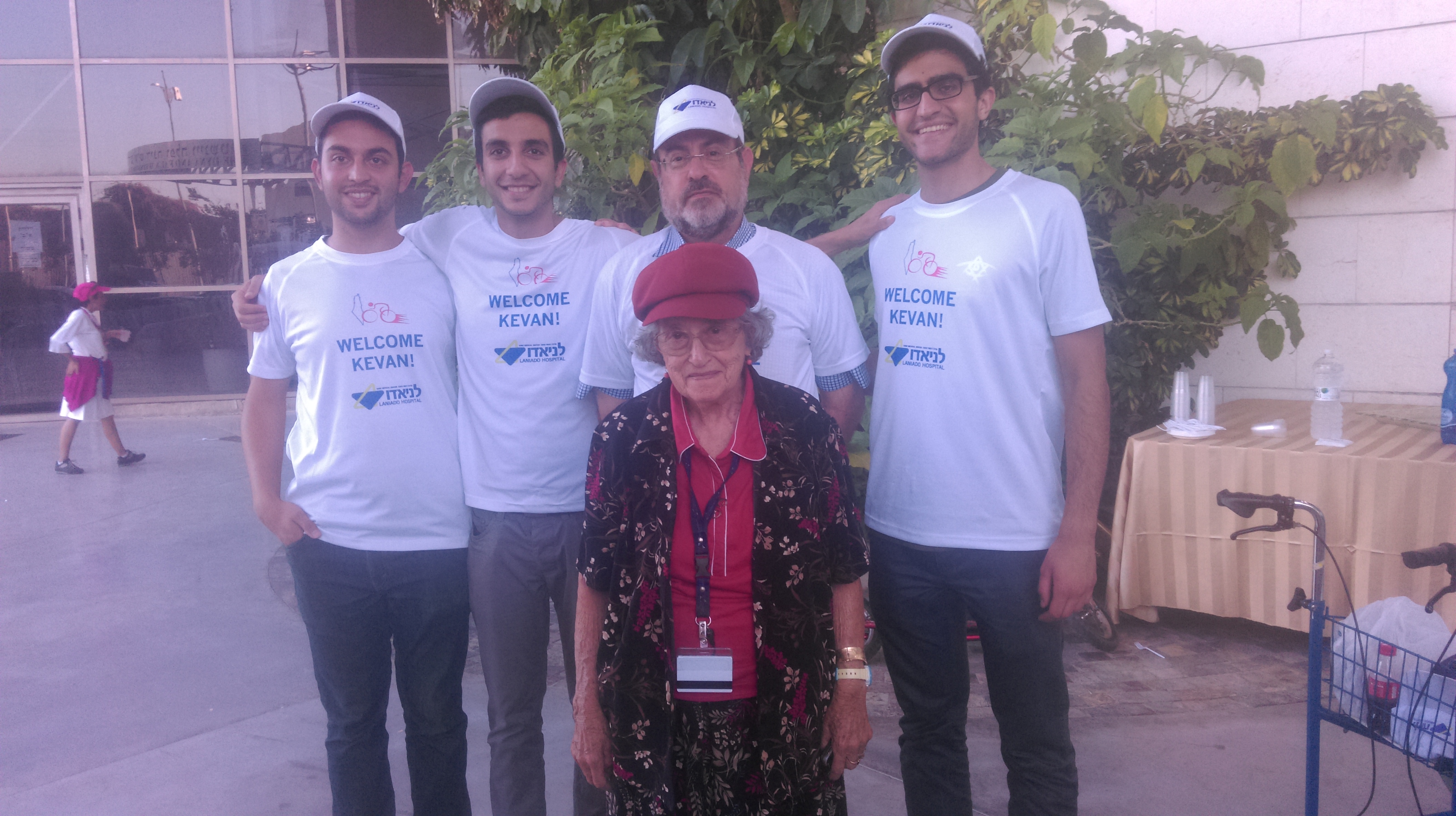And it continues. Every morning we wake up hearing about more horrific attacks in Israel, and it seems that there is no way to stop them. The mainstream media carelessly throws around the word “Intifada,” seeking to grab attention, but it fails to recognize the traumatic weight such a word holds for many. It is easy to give in to the despair and to declare that there is no hope of coexistence between Jews and Arabs in Israel. However, in order to resolve this conflict, we must hold on to the positives and not lose hope for Israel’s future.
One does not have to look far to see examples of shining coexistence between Jews and non-Jews in Israel. This past summer, I volunteered for a month at Laniado Hospital in Kiryat Sanz, Netanya, in Israel. Laniado Hospital was founded by Rabbi Yehuda Yekutiel Halberstam, who lost his wife and 11 children in the Holocaust. After being shot in the arm while in a concentration camp, Rabbi Halberstam vowed that if he was saved from the Nazis, he would build a hospital in Israel where every human being would be cared for with dignity. Rather than seeking revenge, Rabbi Halberstam sought to save lives by opening a hospital guided by his written principles, open to people of all religions and race. Laniado Hospital is in fact a living testament of its amazing founder.
During my time as a volunteer, I was amazed at the level of tolerance and coexistence I observed on a daily basis. The most striking example of coexistence was between the religious and nonreligious Jews in the hospital. The hospital is operated in all aspects according to halachah: The hospital mashgiach (religious Jewish supervisor) ensures that Shabbat and kashrut are fulfilled to the highest level, and the hospital rabbi is available to answer questions at all hours of the day. Visitors are expected to observe the laws of tzniut (modest dress), and there are no TVs in the hospital to accommodate those who avoid watching it on principle. Far from alienating secular patients, however, the atmosphere at the hospital attracts all types of Jews from not only Netanya, but also many other cities in Israel.
As a member of the pre-med volunteer program, I performed rounds with various partners in numerous departments. One week, my rounds partner was an Arab-Israeli medical student named Mohammed. As we did our rounds in the pediatric and prenatal departments, we noticed patients of many ethnicities and religions: Jewish and Arab, Druze, Christian, Asian and African. The most striking patients were the illegal Sudanese and Eritrean immigrants. Many of these immigrants were pregnant teenagers and adolescent mothers who often had no health insurance. And despite the fact that neither the Eritrean mothers nor their babies had any health insurance, they were never turned away. The hospital even hired a translator specifically for these migrants, at its own expense.
At a recent panel discussion at Nessah Synagogue here in Los Angeles, Yaki Lopez, the Consul for Political Affairs at the Consulate General of Israel in Los Angeles, stated: “Rabbi Halberstam dedicated his life efforts to treat and care for all segments of Israel Society… Laniado Hospital is the only real community hospital in Israel, set up in the heart of a Chassidic community and yet being an example of kiddush Hashem (sancitifcation of G-d’s name), a symbol of peaceful coexistence with Jew — religious or non-religious — Arab, Muslim, Christian and Druze working side by side… fulfilling the visions of its founder, Rabbi Halberstam.”
Laniado has played a critical role in dealing with victims of terrorism in Israel. It has served as the primary medical center for the victims of suicide bombings that occurred during the second Intifada, including the 2002 Passover Massacre at the Park Hotel, which is less than a five minute walk from the hospital. Laniado has also been involved in assisting the victims of the recent wave of violence: A 71-year-old stabbed in Netanya on Nov. 2nd underwent emergency surgery at the hospital.
With its greatly diverse staff and patients, Laniado Hospital is a microcosm of Israeli society. The way that this hospital has managed to coexist and thrive within its confines is a model of how Israeli society as a whole should deal with its rifts and thrive even more than it already has.

